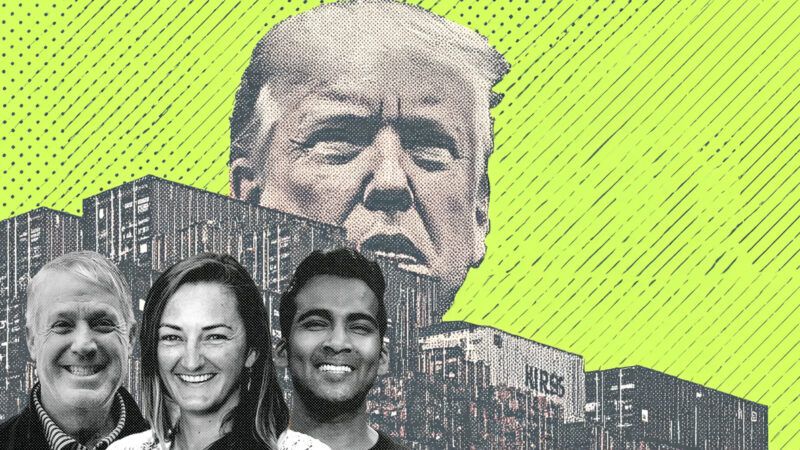These Small Business Owners Explain How Trump's Tariffs Are More of an 'Existential Crisis' Than COVID
President Donald Trump says his tariffs protect American businesses, but more than 700 small businesses represented by We Pay The Tariffs beg to differ.

President Donald Trump has imposed tariffs on $2.2 trillion worth of imported goods, claiming they protect domestic producers. Ironically, American small businesses are among those bearing the heaviest burden of these taxes. Now, these businesses are telling their stories. Recently, a group of over 700 small businesses joined forces by forming We Pay the Tariffs, a coalition that contends Trump's trade policies have caused irreparable harm.
Included in this group is Wild Rye, a women's outdoor apparel brand founded in 2016. Cassie Abel originally launched Wild Rye as an American-made brand, but domestic manufacturers' minimum order quantities and unit pricing made sourcing in the U.S. economically unviable. Chinese manufacturers had markedly lower minimum purchase requirements, prices, and higher quality, so Wild Rye ultimately went with them. By 2024, Wild Rye was one of the fastest-growing brands in the outdoor industry. Now, in the wake of Trump's tariffs, they've frozen all new hires.
The various tariff rates applied to China over the last six months have cost Abel and her company $300,000, or 10 percent of its annual revenue. That's just the seen cost of these tariffs; the unseen cost imposed by Trump's caprice, reflected in his ever-changing rates and implementation dates, is massive. Wild Rye "spent hundreds and hundreds and hundreds of hours countersourcing product; pausing production, restarting production, rushing production; running price analyses, cost analyses, [and] shipping analyses," Abel said during a media call on Wednesday.
Abel said Wild Rye "can't absorb 50 percent tariffs on [its] own," so they've raised prices by 10 percent to 15 percent on all their products and "cancelled all plans for new headcount next year." In a desperate attempt to keep her small business afloat, Abel prematurely sold equity and leveraged her own house. Every tariff hike increases the risk that Abel loses her home.
Aabesh De, founder of Flora, a plant care and diagnosis company, described a remarkably similar situation. De, like Abel, doggedly pursued the made-in-America route: "I was very proud to look at local suppliers based…in Nashville, Tennessee." Unfortunately, the minimum order quantity was 10,000, and the lowest price per unit at this quantity was approximately $55. At the time of writing, the company's Flora Pod, a wireless plant monitor, is on sale for $54.75. To sell the Flora Pod at this price and stay in business, De turned to China, which manufactured the first batch of 2,000 Pods for $22 per unit and a shipping fee of $8,000. When Trump announced his reciprocal tariffs in April, the cost of shipping jumped to roughly $34,000.
As a result of the "50 percent total tax on incoming purchase orders," Flora has had to reduce headcount by 25 percent, increase its prices by 10 to 15 percent (despite originally planning to decrease prices by these amounts), put off inventory purchases, research and development, and delay the rollout of new products. The Flora Pod V2 was supposed to launch this Christmas; now, consumers will have to wait until April or May. De describes Trump's tariffs as "a man-made existential crisis the likes of which we haven't seen since COVID."
Jess Nepstad, founder of Planetary Design, which makes coffee equipment designed for the outdoors, echoed De's sentiment, telling media members that there's no certainty in the American market anymore and Trump's fluctuating tariffs "have required more management than COVID." Planetary Design has had to reduce headcount by 10 percent and raise prices by 20 percent. The company has also been "overcharged by $200,000 on one container" at the port, with Customs and Border Protection saying "it'd take [the government] 300 days to get our money back."
"It's easier just to do business outside the United States—I didn't think I'd ever say that in my 40 years in business," he said.
The Supreme Court will hear oral arguments about the hotly contested constitutionality of Trump's tariffs on Wednesday. It's unclear how the Court will rule, but one thing's for certain: Trump's tariffs are hurting American businesses.


Show Comments (58)